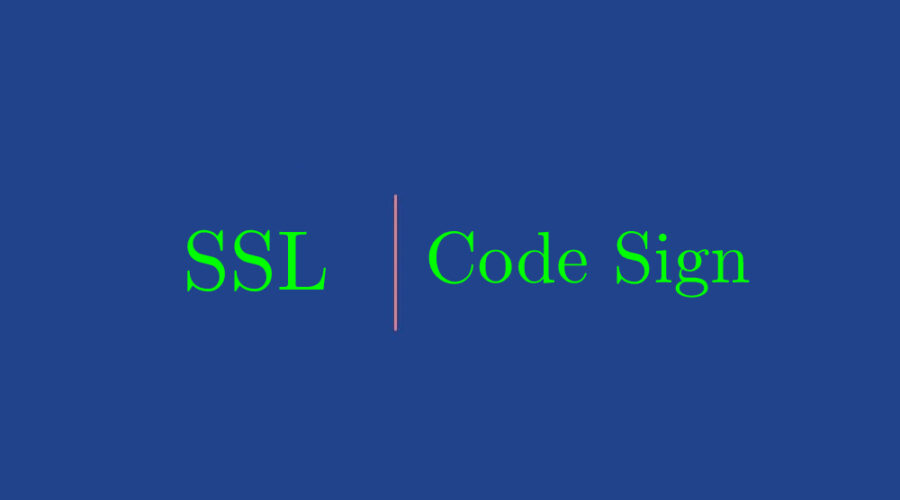A Code Signing Certificate (CSC) is used to verify the identity of a publisher or software developer. The CSC expires after a certain amount of time, but it also has a time stamping feature. What makes a CSC different from a TLS/SSL certificate is that it is used for symmetric encryption rather than one-way encryption. Additionally, a CSC comes with a warranty.
They expire
While code signing certificates are not interchangeable with SSL or TLS certificates, they do share some similarities. One difference is the expiration date. When the certificate expires, the digital signature will not be valid. Another difference is the validation process. Both certificates use public and private keys, and are based on Hashing.
Despite the similarities, the differences between TLS/SSL and Code Signing Certificate expiration date should not be overlooked. Although they may have different uses, SSL certificates are important for the security that it provides. SSL certificates expire for a variety of reasons. For example, the SSL certificate expiration date can be important if a company has multiple domains. It can also be a problem if a domain changes hands frequently.
The lifespan of SSL and Code Signing Certificates is approximately two years. Once the certificate expires, the browser will display a ‘not secure’ warning. Similarly, an expired Code Signing Certificate can display a ‘unknown/unverified publisher’ warning. A time stamp can also help to ensure that the developer’s name is visible even after the certificate expires.
While TLS/SSL certificates are essential for encryption of data in transit, expired SSL certificates leave networks vulnerable to attacks. As networks are comprised of interconnected points, attackers can decrypt data and compromise the encryption keys, resulting in a major network outage or data breach. Companies including Sony Ericsson and LinkedIn have all had their SSL certificates expire, and the consequences are serious.
SSL and Code Signing Certificates provide the highest level of security for websites and downloadable software. They ensure the integrity of software code. However, they differ in how they expire. The SSL/TLS certificate encrypts ongoing data between a server and a browser.
They have a timestamping feature
Code Signing Certificates are timestamped, enabling the user to verify the validity of the digital signature. When a code signing certificate expires, the software will stop working and display warning messages. This feature is essential to any software that requires a reliable digital signature.
While SSL certificates authenticate the organization and domain, Code Signing Certificates validate the identity and legal existence of the website and its publisher. This ensures the integrity of the website, and provides security for all the users using it.
Code Signing Certificates have timestamping features that make them more secure than TLS/SSL Certificates. Unlike SSL certificates, code signing certificates do not encrypt the software itself. They instead hash the digital signature of the software developer or publisher. This helps ensure the integrity of software by protecting users from malicious code.
SSL Certificates and Code Signing Certificates have different lifespans. SSL certificates have a two-year lifespan, while Code Signing Certificates have a longer lifetime of up to five years. Once expired, an SSL certificate will display ‘not secure’ or ‘unverified publisher’ warnings. Time stamping helps keep the name visible even after the certificate expires. However, time stamping requires a private key.
Another key difference between SSL certificates and Code Signing Certificates is the warranty provided by the CA. SSL certificates are typically backed by a warranty that covers damages up to the warranty amount. This warranty is important because many SSL certificates expire.
Code Signing Certificates also have a timestamping feature, which is critical to preserving software code integrity. Code Signing Certificates are a good option for websites that need to secure their software. Code Signing Certificates are more secure than TLS/SSL Certificates.
Code Signing certificates have different validation processes. The validation process is different for individual users and for companies. The certificate authority verifies that the claimant entity is real, and that the business process they are performing is in good faith.
Code Signing certificates also provide assurance that software is safe to download and authentic. This feature helps protect the customer from malware and fraud. It is particularly important for software distributed through third-party download sites. In addition, digitally signed programs don’t trigger warning messages from the operating system.
They have a different warranty
Code Signing Certificates provide a verified digital signature on software that allows buyers to confirm the name and publisher of the software. Code Signing Certificates have a different warranty than SSL and TLS/SSL Certificates. A code signing certificate is often accompanied by a time stamp and timestamp, allowing the buyer to identify the publisher’s name and company.
A Code Signing Certificate is valid for a specific domain and organization, while an SSL or TLS/SSL certificate is valid for an entire organization. An SSL certificate ensures the authenticity of a website and provides identity assurance to consumers. Users will notice the padlock and HTTPS addresses in the browser’s address bar when they visit a website with an SSL certificate.
Code Signing Certificates are generally required for downloadable software, while SSL/TLS Certificates are required for websites. Whether you’re publishing software or using it to secure a website, a code signing certificate ensures the integrity of software. It can also provide a guarantee that your website will work properly and not be hacked.
Both Code Signing Certificates and SSL/TLS Certificates have a different warranty, which may be essential for your website security. An SSL/TLS Certificate provides the highest level of security for your website. Code Signing Certificates are generally used by software developers.
FAQs
Is a code signing certificate an SSL certificate?
No, a code signing certificate is not an SSL certificate. They serve different purposes:
Is a TLS certificate the same as an SSL certificate?
While often used interchangeably, there is a distinction:
- SSL Certificate:
- Historically referred to certificates used with the SSL protocol for securing internet communication.
- TLS Certificate:
- Technically, SSL has been succeeded by TLS (Transport Layer Security).
- In modern contexts, people often refer to "SSL certificates" when discussing certificates used in TLS connections.
- TLS is the more current and secure protocol for encrypting data transmission.

Gloria Bradford is a renowned expert in the field of encryption, widely recognized for her pioneering work in safeguarding digital information and communication. With a career spanning over two decades, she has played a pivotal role in shaping the landscape of cybersecurity and data protection.
Throughout her illustrious career, Gloria has occupied key roles in both private industry and government agencies. Her expertise has been instrumental in developing state-of-the-art encryption and code signing technologies that have fortified digital fortresses against the relentless tide of cyber threats.
